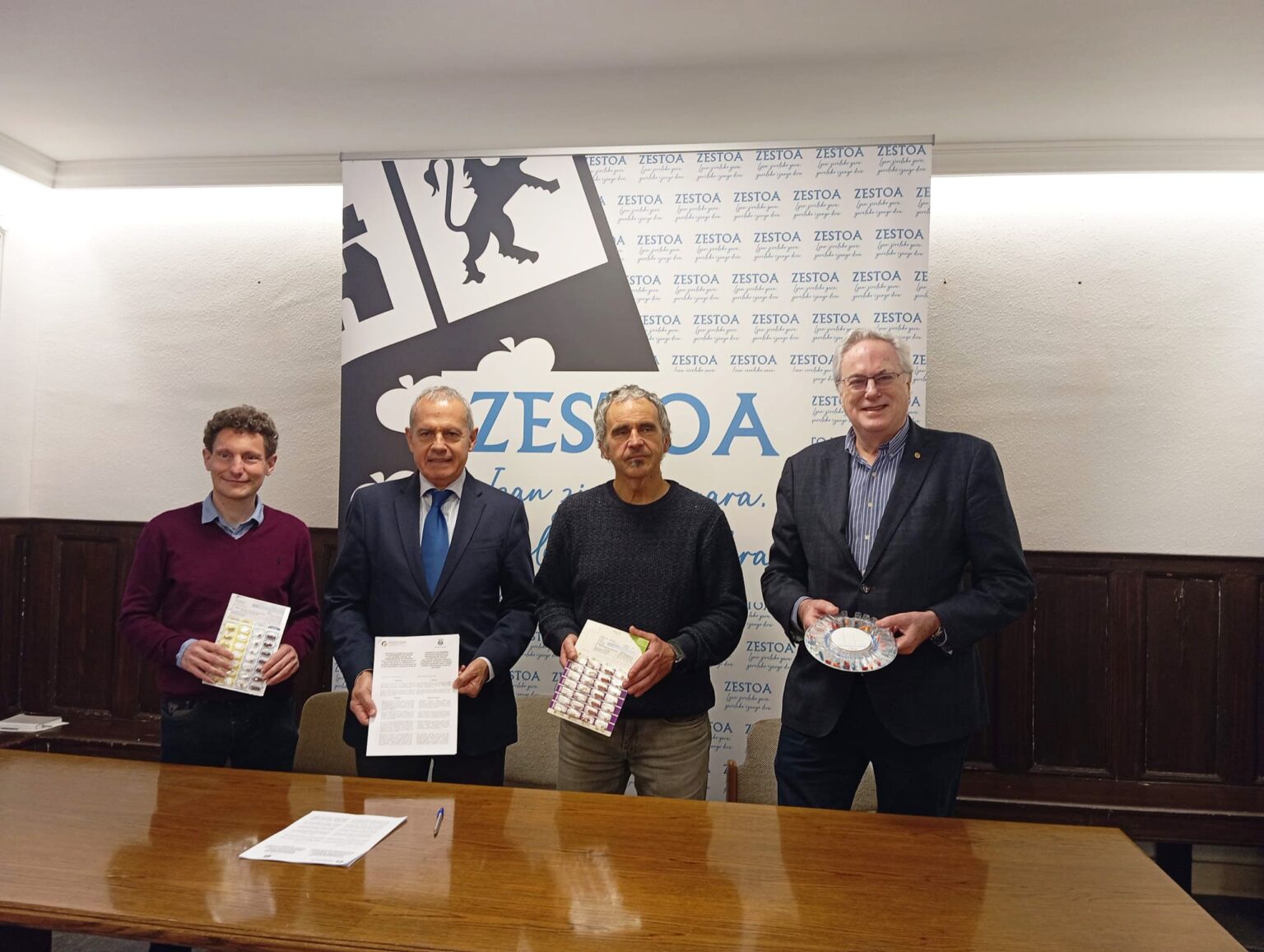The municipality of Zestoa has formalized its adherence to the ‘Medication Management Program for Users of Home Care and Social Services’, an initiative aimed at optimizing access and administration of medication among vulnerable populations. This agreement was signed this morning in a ceremony attended by the mayor of Zestoa, Mikel Arregi, the Director of Pharmacy of the Basque Government, Iñaki Betolaza, and the president of the Official College of Pharmacists of Gipuzkoa, Miguel Ángel Gastelurrutia.
With the inclusion of Zestoa, there are now 50 municipalities in Gipuzkoa participating in this important program. The main objective of the initiative is to improve medication adherence among users of social services and home care workers, establishing a collaboration network between local pharmacies and caregivers. According to program data, 96% of pharmacies in the province are accredited to participate, demonstrating a strong commitment to public health in the community.
So far, pharmacies involved in the program have managed the medication of over 600 people receiving support from social services. These individuals have been selected by the relevant authorities of each municipality, ensuring a precise and tailored approach to the needs of those most in need. Mikel Arregi emphasized the importance of such initiatives, highlighting the need to strengthen coordination between different institutions to enhance the quality of health and welfare services.
Xabier Astiz, a pharmacist in Zestoa, expressed cautious optimism about this new collaboration, emphasizing that many elderly patients do not adhere properly to their treatments, either due to misunderstandings about medications or forgetfulness. He stated that this program could be crucial in increasing treatment adherence and, consequently, improving patient health. He also stressed the importance of detecting possible adverse reactions and medication-related problems, which can help prevent duplications and errors in treatment compliance.
On his part, Iñaki Betolaza highlighted that the initiative places individuals at the center of healthcare, improving their quality of life and enhancing the role of pharmacies as key agents in promoting health in the community.
The program’s operation involves social services selecting consenting users to participate. Subsequently, the patient can choose their pharmacy, where they will undergo an interview to gather information about their medication and health status. After this process, the pharmacist prepares and delivers the medication in personalized dosages on a bi-weekly or weekly basis, using systems that organize the tablets to be taken throughout the day, along with the necessary instructions for proper administration.
via: MiMub in Spanish










